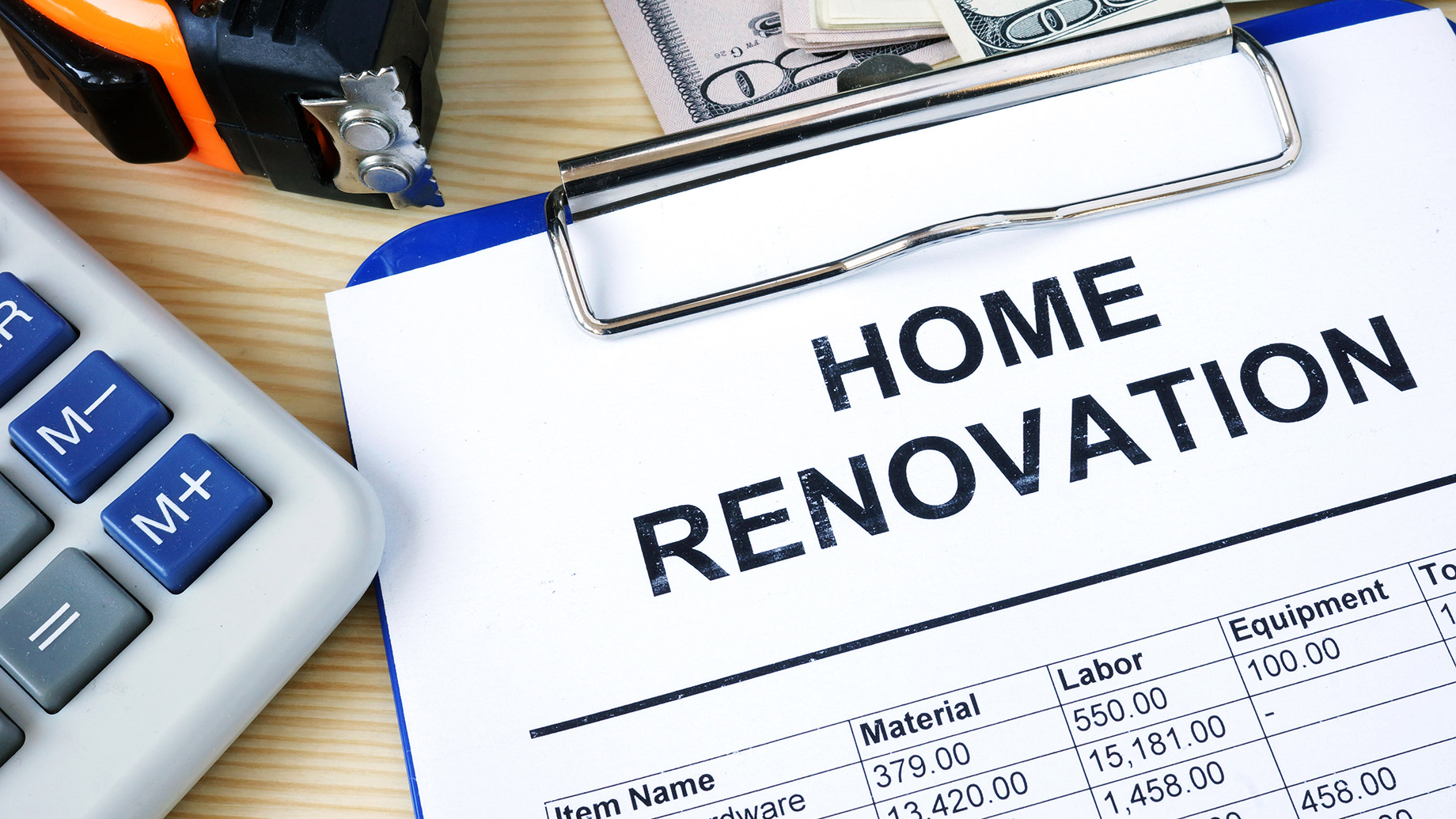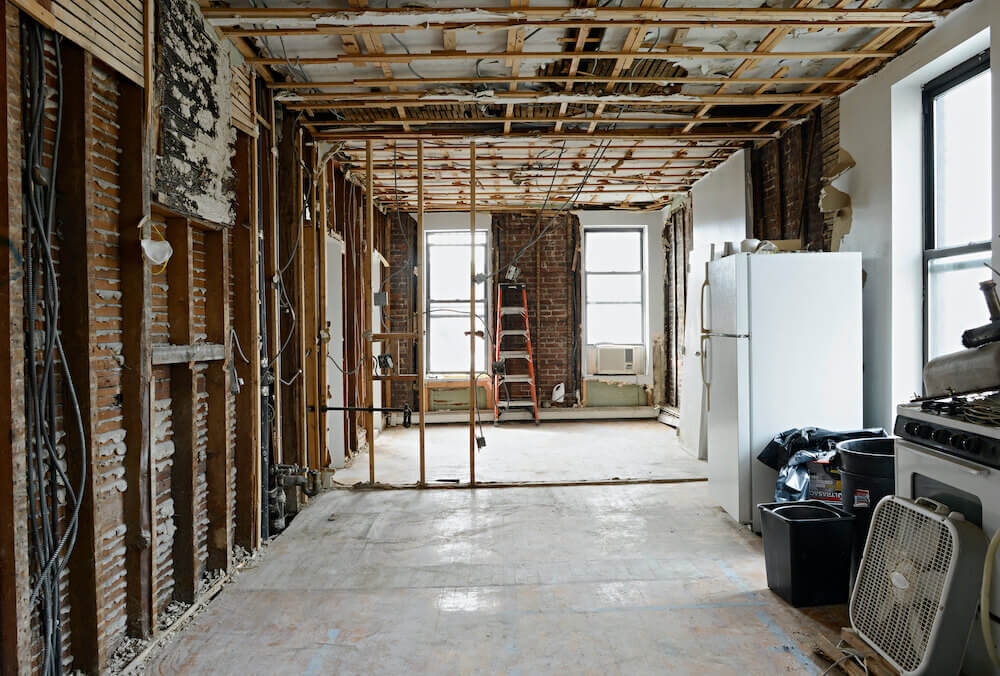Title: How to Plan a Home Renovation Budget?: To plan a home renovation budget, start by evaluating your financing options and itemizing projected costs for materials and labor. Next, add a contingency fund for unexpected expenses to ensure financial readiness.
Also Read
Embarking on a home renovation project can be both exciting and daunting, especially when it comes to budgeting. A well-crafted budget serves as the blueprint for a successful renovation, guiding you through each phase without financial strain.
Begin by establishing a clear vision of the desired outcome, which will inform all cost-related decisions.
Researching current pricing trends for materials and labor in your area is critical, as these can vary significantly. Prioritize the must-have renovations and consider the potential return on investment, especially if you’re updating with future home sales in mind.
Remember, a thorough upfront planning process can save you from overspending and help you navigate the complexities of renovation with confidence.
Introduction To Home Renovation Budgeting
Planning a home renovation can excite and overwhelm. A clear budget is key. It guides your project and keeps spending in check. Let’s dive into how to set a budget that works for you.
The Importance Of Budgeting Before Starting
Setting a budget is crucial for home renovations. It helps avoid overspending and ensures you can finish your project. A well-planned budget gives you control over costs. It also allows for better decision-making.
- Prevents financial strain
- Controls project scope
- Improves cost management
Common Challenges In Renovation Budgeting
Budgeting for home renovations presents challenges. Unforeseen costs can disrupt plans. Material prices vary, and project scopes can change. It’s essential to anticipate these issues.
| Challenge | Impact |
|---|---|
| Unexpected Costs | Increases expenses |
| Changing Plans | Can delay completion |
| Material Costs | Affects overall budget |
Setting Your Renovation Goals
Planning a home renovation starts with clear goals. Know what you want and need. This makes your project smooth and keeps your budget in check. Let’s dive into setting your renovation goals.
Identifying Needs Vs. Wants
Needs are must-haves for your home to function well. Wants are nice-to-have features that add comfort or style. It’s crucial to know the difference. This ensures you allocate your budget wisely.
- Needs: Fixing a leaky roof, updating old plumbing.
- Wants: A new paint color, high-end appliances.
Prioritizing Projects For Maximum Impact
Not all projects are equal. Some add more value to your home than others. Start with projects that ensure safety and increase home value. This strategy gives you the best return on investment.
- Fix structural issues first.
- Update kitchens and bathrooms next.
- Lastly, consider cosmetic updates.
Determining Your Budget
Embarking on a home renovation journey starts with a plan. A crucial part of this plan is your budget. Knowing your financial limits sets the groundwork for a smooth remodeling process. Let’s dive into how you can determine a budget that works for you.
Assessing Your Financial Situation
Before you dream big, understand your money. Look at savings, income, and expenses. Assess your financial health to avoid debt. Use these steps:
- Review bank statements for savings.
- Check regular income sources.
- Subtract monthly expenses from income.
- Determine free cash for renovations.
Calculating A Realistic Spending Limit
Setting a spending cap keeps your project on track. Follow these guidelines:
| Step | Action |
|---|---|
| 1 | Estimate renovation costs. |
| 2 | Factor in a contingency fund of 20%. |
| 3 | Compare with available funds. |
| 4 | Adjust project scope if necessary. |
Use these steps to avoid overspending. Stick to the plan for a successful home update.

Credit: www.thepinnaclelist.com
Cost Breakdown: Estimating Expenses
Planning a home renovation requires a clear budget. This guide helps estimate your costs.
Typical Costs In Home Renovations
Understanding standard expenses ensures a realistic budget.
| Renovation Part | Cost Range |
|---|---|
| Kitchen | $5,000 – $30,000 |
| Bathroom | $3,000 – $20,000 |
| Roof | $5,000 – $10,000 |
| Flooring | $1,500 – $5,000 |
Prices vary by material quality and labor costs.
Unexpected Costs To Consider
Surprise expenses often occur.
- Structural repairs: These can add thousands to your budget.
- Wiring updates: Older homes might need new electrical systems.
- Plumbing issues: Hidden problems may require costly fixes.
- Permit fees: Local regulations could impact overall costs.
Set aside 20% of your budget for these unexpected costs.
Finding Ways To Save
Planning a home renovation can be pricey. Yet, smart choices can lead to big savings. Let’s dive into ways to save without sacrificing quality.
Cost-effective Materials And Solutions
Finding cost-effective materials is key. It doesn’t mean cheap. It means value.
- Laminate can mimic wood and stone at a fraction of the cost.
- Recycled materials offer unique looks and eco-friendly options.
- Consider refurbishing existing elements. It can save a lot and add charm.
Always compare prices and quality. Ask for samples. They help make better decisions.
Timing Your Renovation For Discounts
Timing matters in renovations. Some seasons offer better deals.
- Winter often sees fewer projects. Contractors may offer discounts.
- End-of-year sales are perfect for buying appliances and materials.
- Plan ahead. Last-minute buys often cost more.
Mark sales calendars. Subscribe to newsletters from favorite stores. Alerts for deals can lead to huge savings.
Smart Financing Options
Funding a home renovation requires a solid plan. Smart financing can make this possible. Explore options to fund your project wisely. Here are key points to consider.
Comparing Loans And Interest Rates
Loan comparison is crucial for budget-friendly renovations. Consider these steps:
- Identify lenders: Banks, credit unions, online lenders.
- Gather offers: Request quotes from multiple lenders.
- Analyze terms: Look at interest rates, repayment periods.
- Calculate costs: Use online calculators for estimates.
Choose a loan with low interest. This will reduce overall cost.
The Pros And Cons Of Using Credit
Using credit cards is an option. It has benefits and drawbacks.
| Pros | Cons |
|---|---|
| Quick access to funds | Higher interest rates |
| Potential rewards | Credit score impact |
| Flexible repayment | Risk of debt accumulation |
Consider credit for small projects. Ensure you can repay on time.
Working With Contractors
When planning a home renovation, choosing the right contractor is crucial. Your budget and the project’s success depend on this choice. It’s important to negotiate costs and contracts with clarity. This ensures a smooth renovation process. Let’s explore the steps to work effectively with contractors.
Choosing The Right Contractor
Finding a skilled contractor who understands your vision is key. Start by researching local contractors. Read reviews and check portfolios. Ask for recommendations from friends and family. They might know reliable professionals.
Look for licensed and insured contractors. This protects your home and finances during the renovation. Set up meetings with potential hires. Discuss your project in detail. This helps you gauge their expertise and compatibility.
- Research local contractors online and offline
- Check reviews and portfolios
- Seek recommendations from your network
- Ensure they have licenses and insurance
- Meet and discuss your project
Negotiating Costs And Contracts
Once you find a suitable contractor, discuss the budget openly. Request a detailed quote. This should break down labor and material costs. Compare quotes from different contractors. This helps you find the best value. Don’t choose based on price alone.
Consider experience and quality too. Negotiate terms that benefit both parties. Ensure the contract is clear. It should outline the project scope, timeline, and payment schedule. Document any changes in writing. This avoids disputes later on.
| Step | Action |
|---|---|
| 1. Discuss Budget | Have open conversations about project costs |
| 2. Get Quotes | Request detailed breakdowns from contractors |
| 3. Compare | Look at different quotes to gauge value |
| 4. Negotiate | Discuss terms that work for both sides |
| 5. Contract Clarity | Ensure the contract details every aspect clearly |
| 6. Change Documentation | Write down any project changes to avoid issues |
Stick to these steps. They will help you work well with contractors. Your home renovation can then become a reality within your budget.
Staying On Track
Home renovations can quickly derail without a solid plan. Stay on track with careful budget management. This ensures a smooth renovation journey.
Monitoring Spending During The Renovation
Keep tabs on every dollar spent. It’s crucial for staying within your budget. Start by setting up a system. This tracks all renovation expenses. Use tools like spreadsheets or budgeting apps. They help monitor costs in real time.
Key steps include:
- Recording all purchases and contracts.
- Reviewing weekly spending against your plan.
- Keeping all receipts and invoices organized.
Adjusting The Budget Mid-project
Unexpected costs may arise. Be ready to adjust the budget accordingly. It helps to allocate a contingency fund. This covers unforeseen expenses.
| Original Budget | Additional Costs | New Budget |
|---|---|---|
| $20,000 | $2,000 | $22,000 |
Review the budget regularly. Make necessary adjustments. This ensures that your project stays on financial track.
Final Thoughts On Renovation Budgeting
Renovating a home is a big project. Staying on budget matters. Careful planning leads to success. Let’s reflect on budgeting strategies after the dust settles.
Post-renovation Evaluation
Assess your spending once renovation wraps up. Did you stay within budget? Identify what worked and what didn’t. This insight helps with future projects. Break down costs into categories like labor, materials, and unexpected expenses.
Review each category. Spot trends and areas for savings. Keep all receipts and contracts. These documents are useful for warranties and insurance purposes.
Planning For Future Home Improvement Projects
Use your current project to plan ahead. Create a home improvement roadmap. This helps prioritize upcoming projects. Allocate funds accordingly.
- Start small. Tackle minor upgrades first.
- Set clear goals. Know what you want to achieve.
- Research costs. Get multiple quotes.
Save a portion of your income for home improvements. This creates a renovation fund over time. Be ready for both planned and unplanned projects.

Credit: sweeten.com

Credit: www.ramblingrenovators.ca
Frequently Asked Questions
What Are The Initial Steps For Planning A Renovation Budget?
Before diving into specifics, list your renovation goals and prioritize them. Research average costs for similar projects, and consider setting aside an extra 10-20% of your budget for unexpected expenses.
How Can I Calculate The Cost Of Home Renovation?
To calculate renovation costs, break down the project into smaller tasks. Get estimates from contractors or price out materials if you’re DIY-ing. Include labor, materials, permits, and cleanup costs in your calculations.
What Factors Affect Home Renovation Costs?
Several factors can impact costs, including project size, material quality, labor rates, and the complexity of the work. Location can also play a significant role, as prices vary regionally.
How To Save Money On A Home Renovation?
To save money, consider doing some work yourself, shopping around for materials, and repurposing or refurbishing items. Always compare quotes from different contractors and negotiate for better rates.
Conclusion
Planning your home renovation budget can be straightforward and stress-free. Start by setting clear goals, researching costs, and considering contingencies. This approach ensures you stay on track financially, avoiding surprises. Remember, a well-planned budget is key to transforming your space efficiently and effectively.
Take that first step today towards your dream home renovation.




